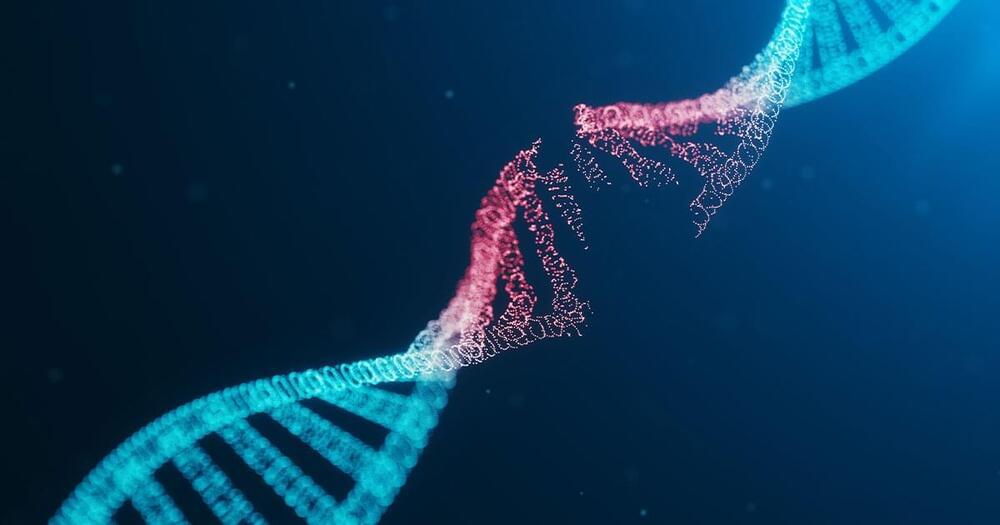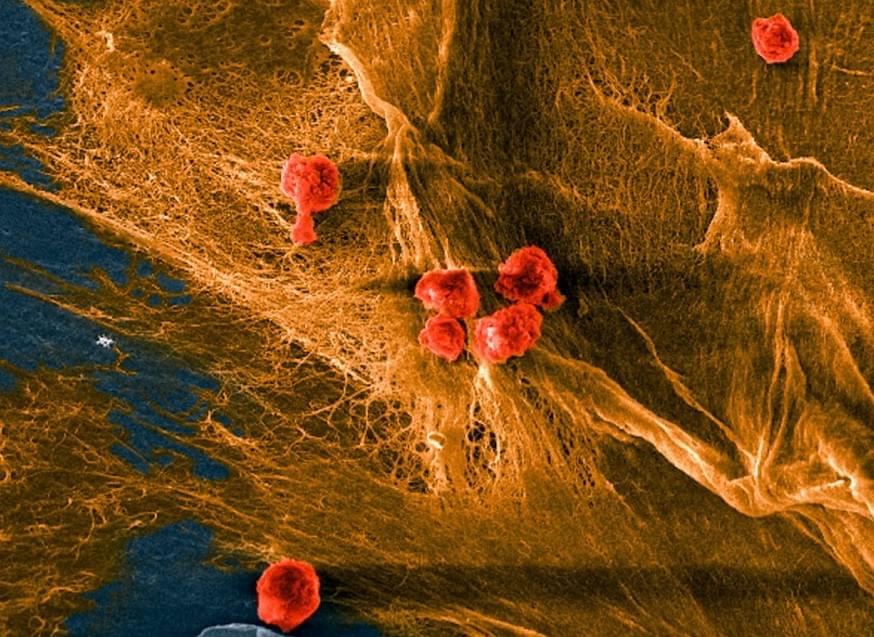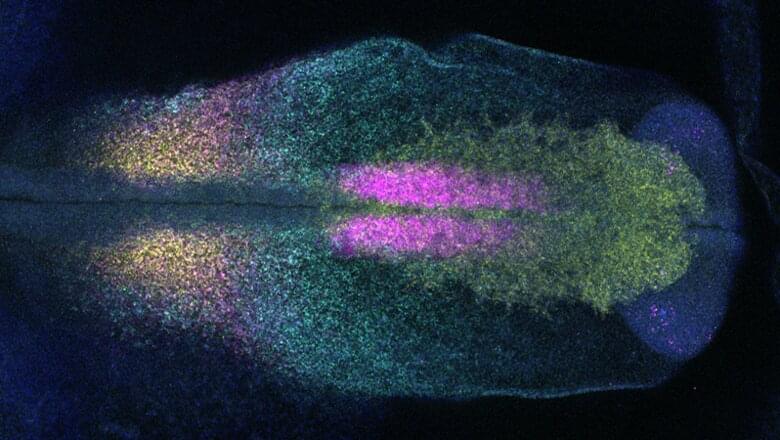New work shows that neurons and other brain cells use DNA double-strand breaks, often associated with cancer, neurodegeneration and aging, to quickly express genes related to learning and memory.




“Harms in early life can take many forms, and can lead to health consequences many years down the road. What our study shows is that these consequences manifest as perturbations to multiple biological systems, which can be measured from biomarkers in blood.”…
Individuals exposed to adverse childhood experiences tend to be biologically older than their counterparts, according to new research published in the scientific journal Psychoneuroendocrinology.
Adverse childhood experiences refer to a set of potentially traumatic events that occur before adulthood. These experiences include various forms of abuse and neglect, witnessing intimate partner violence, parental death or serious illness, parental divorce or separation, and psychiatric illness of a family member. Biological aging, on the other hand, refers to the accumulation of damage and loss of function to cells, tissues and organs.
Previous research has found that people exposed to adverse childhood experiences are more likely to suffer from chronic diseases and have a shorter lifespan. The authors of the new study were interested in whether accelerated biological aging could help explain the relationship between adverse childhood experiences and poor health outcomes later in life.
Things I learned:
1. Various tissues will have different safe zones of rejuvenation before they become pluripotent but we could make tissue specific treatments and treat them separately without effecting others.
2. A 40 year old woman makes a 40 year old egg but that egg is rejuvenated to its younger state with no damage after fertilization.
I share this revealing interview given by Liz Parrish, “Patient Zero” in biological rejuvenation, to a journalist in Madrid, Spain. It took place in July 10, 2022 and lasts 20 minutes.
During the interview Liz speaks in English. However, the journalist, whose name is María Zabay, speaks mostly in Spanish.
Don’t miss it because Liz says things that most people don’t know about her and her company BioViva Sciences.
Liz Parrish, patient zero in gene therapy for full-body and brain biological rejuvenation, is interviewed by María Zabay.
María is a writer, speaker, director and host of television programs, as well as actress.

Researchers at Cornell University have come up with a novel biomaterial that can be used to create artificial skin capable of mimicking the behavior of natural human tissues.
Thanks to its unique composition, made up of collagen mixed with a ‘zwitterionic’ hydrogel, the team’s biohybrid composite is said to be soft and biocompatible, but flexible enough to withstand continued distortion. While the scientists’ R&D project remains ongoing, they say their bio-ink could one day be used as a basis for 3D printing scaffolds from patients’ cells, which effectively heal wounds in-situ.
“Ultimately, we want to create something for regenerative medicine purposes, such as a piece of scaffold that can withstand some initial loads until the tissue fully regenerates,” said Nikolaos Bouklas, one of the study’s co-lead authors. “With this material, you could 3D print a porous scaffold with cells that could eventually create the actual tissue around the scaffold.”

A new King’s-led study, published in the Proceedings of the National Academy of Sciences, has found that a single factor (a protein coding gene known as Sox8) can make non-ear cells adopt ear character during embryo development. The findings not only demonstrate how cell fate decisions are regulated in the embryo but may also inform reprogramming and regenerative strategies for the ear developmental malformations.
Responsible for the sense of hearing and balance, the inner ear is critically important for communication with the environment. In humans, developmental malformations of the ear have life-long consequences, while age-related hearing defects affect a large proportion of the population. Currently, there are no therapies that involve biological approaches—only hearing aids or cochlear implants, as how the ear normally develops is not fully understood and many of the controlling factors are poorly characterized.
Researchers from the Faculty of Dentistry, Oral and Craniofacial Sciences at King’s, in collaboration with colleagues from the Francis Crick Institute, explored the earliest steps in ear development to determine what causes cells to become ear cells, and what makes them different from cells which form other sense organs.
Is longevity desirable? Review of biological immortality in storytelling.
And what the prospects are to achieve it in the near future.
The quest for longer lifespan and healthspan.
Since the dawn of human civilization we were inspired by the quest for immortality and eternal youth.
But now, with new advances in medical science, this quest is on the verge of becoming a reality.
In this landmark talk, Peter Diamandis shares how we are rapidly heading towards a human-scale transformation, the next evolutionary step into what he calls a “Meta-Intelligence,” a future in which we are all highly connected — brain to brain via the cloud — sharing thoughts, knowledge and actions.
He highlights the 4 driving forces as well as the 4 steps that is transforming humanity.
In 2014 Fortune Magazine named Peter Diamandis as one of the World’s 50 Greatest Leaders.
Diamandis He is the Founder & Executive Chairman of the XPRIZE Foundation which leads the world in designing and operating large-scale incentive competitions. He is also the Co-Founder & Exec Chairman of Singularity University, a graduate-level Silicon Valley institution that counsels the world’s leaders on exponentially growing technologies.
As an entrepreneur, Diamandis has started 17 companies. He is the Co-Founder and Vice-Chairman of Human Longevity Inc. (HLI), a genomics and cell therapy-based company focused on extending the healthy human lifespan, and Co-Founder and Co-Chairman of Planetary Resources, a company designing spacecraft to enable the detection and prospecting of asteroid for fuels and precious materials.
Peter Diamandis earned degrees in Molecular Genetics and Aerospace Engineering from the MIT, and holds an M.D. from Harvard Medical School.
This talk was given at a TEDx event using the TED conference format but independently organized by a local community.
http://2045.com http://gf2045.com.
In February of 2012 the first Global Future 2045 Congress was held in Moscow. There, over 50 world leading scientists from multiple disciplines met to develop a strategy for the future development of humankind. One of the main goals of the Congress was to construct a global network of scientists to further research on the development of cybernetic technology, with the ultimate goal of transferring a human’s individual consciousness to an artificial carrier.
2012–2013. The global economic and social crises are exacerbated. The debates on the global paradigm of future development intensifies.
New transhumanist movements and parties emerge. Russia 2045 transforms into World 2045.
Simultaneously, the 2045.com international social network for open innovation is expanding. Here anyone interested may propose a project, take part in working on it, or fund it, or both. In the network, there are scientists, scholars, researchers, financiers and managers.
2013–2014. New centers working on cybernetic technologies for the development of radical life extension rise. The ‘race for immortality’ starts.
2015–2020. The Avatar is created — A robotic human copy controlled by thought via ‘brain-computer’ interface. It becomes as popular as a car.